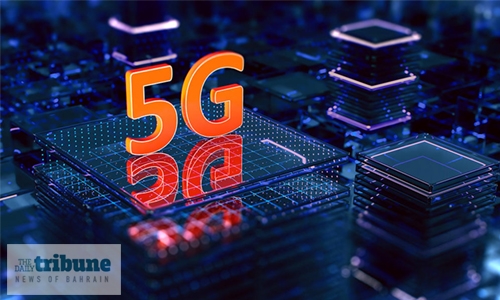‘Bahrain, an emerging regional leader in 5G technology sector’
As Bahrain prepares for the imminent rollout of 5G, the Telecommunications Regulatory Authority (TRA), in collaboration with Ericsson, the GSMA and Huawei held a workshop for service providers, government agencies and business leaders in the Kingdom to explore the potential of 5G. “We took a big leap this year by helping establish BNET as a wholesale entity for the Kingdom’s telecom infrastructure,” said Shaikh Nasser Bin Mohamed Al Khalifa, Acting General Director of TRA.
“This move levels the playing field and sets a gold standard that consumers can expect from all operators. We’ve laid the groundwork, so that network speed and quality becomes a ubiquitous feature across all licensed service providers, so that the dynamic for competition shifts focus from a basis of infrastructure to one based on innovative services. “If fibre optics is the backbone of industry 4.0, then 5G is a catalyst that will allow the full potential of IoT to materialise,” Shaikh Nasser added.
5G is no simple generational leap forward in mobile technology, and the purpose of this workshop is to explore its possibilities and guide everyone towards taking it on. “In addition to supporting the TRA in establishing a comprehensive 5G strategy in Bahrain, we have announced partnerships with leading service providers such as Batelco and Zain to accelerate 5G deployment in the Kingdom.
We feel a tremendous sense of urgency to push forward on 5G and mobilise the ecosystem by collaborating with industry leaders and developers to usher in a new generation of innovation,” says Wojciech Bajda, Head of Ericsson Gulf Council Countries Across the globe, 5G use case studies find their way into every industry sector. From remote patient monitoring and consultation to remote surgery in medicine, in transportation, 5G will be the pillar that autonomous vehicles rely on – a 2017 study from Deloitte estimated that self-driving cars enabled by mobile connectivity could reduce emissions by 40 to 90 per cent, improving travel time by 40pc and reducing delays by 20pc, whereas in banking, blockchain and fintech combined with 5G will have a surge of economic benefits.
“Bahrain is establishing itself as a leader in 5G technology within the region, thanks to the roll-out of two 5G networks in 2019. It is important to capitalise on this early lead, especially as, according to GSMA Intelligence, subscribers within the MENA region are predicted to consume an average of 23GB of mobile data per month by 2023, up from just 2.5GB today,” said Michele Zarri, Technical Director of Future Networks, GSMA. “I was delighted to be able to deliver the GSMA’s 5G Advanced training course, covering topics such as ‘how 5G networks can support users growing appetite for mobile data’.
It was also a pleasure to take part in the lively panel discussion on the measures the TRA can take to foster the development of 5G networks and services in Bahrain.” Key technologies in 5G performance goals include a high data rate, low latency, and massive machine to machine communications. John Lu Yuedong, CEO of Huawei Bahrain says: “5G development is accelerating at speeds beyond imagination, with roll-out imminent in markets across the Middle East and the world at large.
At Huawei, we are continuing to collaborate with the Bahraini government and our local customers to push 5G forward and to realise the full value of the digital economy. Workshops such as this are essential platforms to experience the latest 5G applications and to pioneer innovations in the market.”
Related Posts

